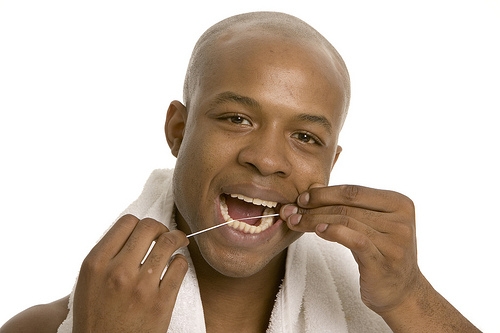
So you might be wondering, just what are cavities? How do we get them? What do they do to our teeth? How can we prevent them? Let’s talk!
Our teeth need to be strong to bite and chew. That’s why they are protected by a coating called enamel, which is made up of very hard minerals. Enamel is the strongest part of our bodies—stronger even than our bones. But this doesn’t mean nothing can hurt it! And cavities, also called tooth decay, are one of the most common dangers facing our enamel.
So, what are cavities?
A cavity is a hole in your tooth enamel. If your tooth is not cleaned and repaired when a cavity is small, this hole can grow bigger until tooth decay reaches the inside of your tooth. Enamel doesn’t heal when it’s damaged, so you need to see a dentist to make your tooth healthy again.
How do we get cavities?
Bacteria are tiny little germs. Many kinds of bacteria live in our bodies, and some of them are quite helpful. The bacteria which cause cavities are not. These unhelpful bacteria join with our saliva and very small pieces of the food we’ve chewed to make a sticky film called plaque.
Like other living things, the bacteria in plaque need food. They get that food from the foods we eat, especially sugars and starches. As they eat, they change these sugars and starches into acids, and these acids attack the minerals which keep enamel hard and strong.
Because plaque sticks to our teeth, bacterial acids are able to make weak spots in enamel if the plaque isn’t brushed away. If you see a white spot on your tooth, that could mean that your enamel is losing minerals, and getting weaker.
What do cavities do to our teeth?
Over time, weak spots can grow bigger until there’s a hole in the enamel surface. If the cavity in your enamel is small, you might not notice it at first. But cavities can become wider and deeper, and even break through enamel to reach the inside of your tooth.
The inside of each tooth holds pulp, the part of your tooth which keeps it healthy. If tooth decay spreads to the pulp, it can cause more damage and infection, so it’s important to treat a cavity right away.
Dark spots on your enamel, a toothache, pain when you drink something hot or cold or when you bite down—these can be clues that you have a cavity, and you should visit us for an exam.
How can you prevent cavities?
Even better than treating a cavity is preventing one. Let’s make a list of some helpful do’s and don’ts for cavity prevention:
- Do: Feed yourself foods which are good for you.
Foods like milk and cheese and many dark green vegetables have lots of calcium and vitamin D to help keep your enamel strong.
- Don’t: Feed bacteria foods which are good for them.
Sugar and simple starches like potato chips are the kinds of foods bacteria like best, because they are easy to break down. This means more acids to attack your enamel.
This doesn’t mean you should never enjoy a treat! But eating lots of starchy snacks and drinking sugary sodas means more plaque, and more plaque can mean more cavities. If you’re eating something starchy or sweet, it’s a good idea to brush or rinse afterward.
- Do: Brush at least twice a day, for at least two minutes, with fluoride toothpaste.
This is the best way to get rid of plaque, which builds up every day. And fluoride toothpaste even helps make your enamel stronger.
Flossing takes a while to learn to do well, but it’s very important. Flossing helps prevent cavities between the teeth and near the gums.
- Do: Visit our Michigan Center, MI dental office for exams and cleanings.
Not only will we look for cavities, we’ll let you know the best way to brush and floss so you can get your teeth their cleanest.
- Don’t: Feel bad if you get a cavity!
Some people are more likely to get cavities than others, even when they brush just right and eat healthy foods. If you have a cavity, we can remove decay and repair your tooth with a filling.
And one last thing to do: talk to Dr. Timm if you have any questions about the best ways to protect your teeth from cavities. We have lots of suggestions to help you take care of your healthy, beautiful smile!




